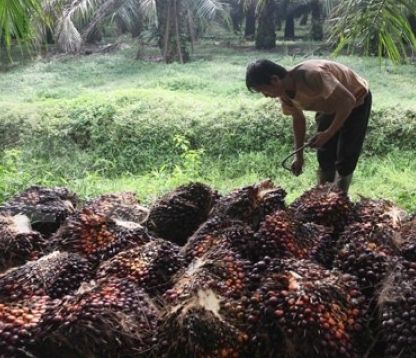31 Jan 2017

“Globally, sustainable palm oil production that has been certified by RSPO has reached 12.15 million tons or approximately 17% of the world’s total palm oil production,” explained Tiur Rumondang, Director of the Roundtable on Sustainable Palm Oil (RSPO) Indonesia.
Up to 2016, there was approximately 1.8 million hectares (ha) of palm oil plantation that was RSPO-certified. Tiur stated that this number is still relatively small, namely around 12% of the total palm oil plantation area in Indonesia.
Based on data from the Ministry of Agriculture, the total palm oil plantation area in Indonesia has reached 10.8 million ha. Meanwhile, the palm oil factories that have acquired RSPO certification number around 174 factories from 37 member company groups of RSPO operating in Indonesia.
Tiur mentioned, the awareness to obtain RSPO certification in Indonesia is showing a positive growth trend. This can be seen from the increasing number of certified and sustainable palm oil plantations, compared to 2015 which only reached 1.46 million ha.
The productivity of certified palm oil plantations is also claimed to have increased. If usually one hectare produces 4 tons per year, it can now reach 5 tons per hectare per year.
“We also do not know for sure whether the increase in productivity is supported by good and proper seeds and management. What is certain is that certified palm oil plantations have economic advantages,” added Tiur.
He said, there are many benefits of implementing sustainable RSPO certification. Some of the benefits include being able to compete at international level, and higher market acceptance, especially for product users in the European Union.
RSPO has a target of achieving 50% market absorption of Certified Sustainable Palm Oil (CSPO) in Indonesia up to 2020. Tiur said that achieving this target would not be easy, they need to work extra hard to convince business actors and plantation owners.
“Our biggest challenge is the operational culture of plantation companies. For decades, they have operated without anyone monitoring them, but as soon as they join RSPO, there is someone monitoring them,” he said.
The challenge to build awareness for certification is most difficult in medium- and small-scale palm oil companies. Their target market is the domestic market which does not require special certification, so they believe that they do not need CSPO.
There are eight main principles that must be fulfilled by a palm oil company in order to obtain RSPO certification. When expanded, there are 143 specific criteria that must be fulfilled. RSPO sustainable certification is valid for five years, and there is a separate audit every year.
http://industri.kontan.co.id/news/indonesia-dominasi-pasar-cpo-bersertifikat
© Inacom. All Rights Reserved.